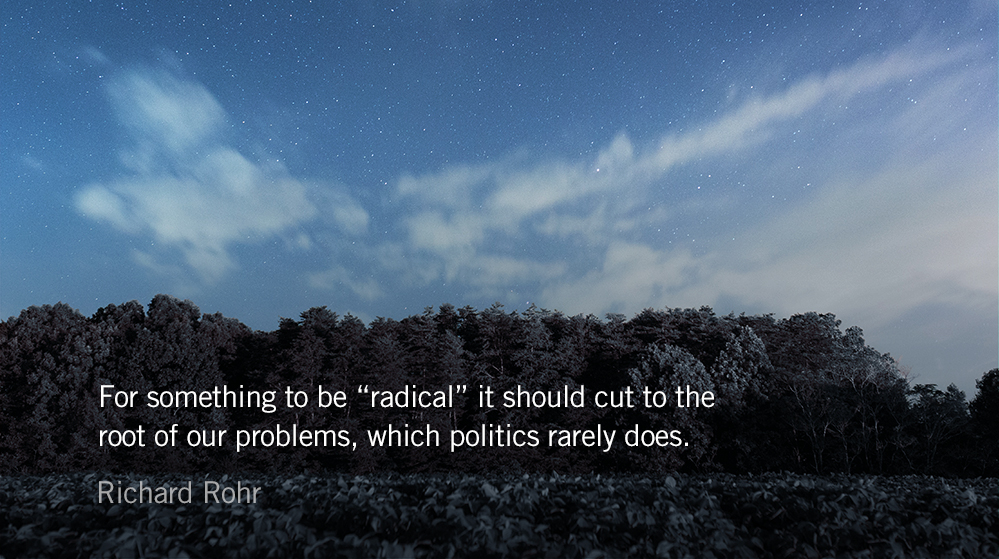Though I walk in the midst of trouble, you preserve my life. — Psalm 138.7
If anything has become clear from vitriol of this election year, it’s that the radical edges of culture have gained louder voices. The problem with these voices is not that they are too radical, but that they are not radical enough. Father Richard Rohr observes:
There is a lot of talk today about “radical” politics. Depending on your political affiliation, the candidates on the other side often look “radical” and “extreme.” “Radical” comes from the Latin word radix, meaning “root.” For something to be “radical” it should cut to the root of our problems, which politics rarely does.
To be radical is to confess. A radical voice not only confesses what it perceives as the key problem, but what, or whom, it trusts in as the ultimate solution. How are we to solve for corruption? How can we end xenophobia?
The solutions put forth over the past few months have asked our nation to double down on its trust in “chariots and horses”—the government’s power and leaders—rather than turn to anything that transcends our most significant national problems. Rohr continues:
True religion is radical. It moves us beyond our “private I” and into full reality. Jesus seems to be saying in the Sermon on the Mount that our inner attitudes and states are the real sources of our problems. We need to root out the problems at that level. Jesus says not only that you must not kill, but that you must not even harbor hateful anger. He clearly begins with the necessity of a “pure heart” and knows that the outer behavior will follow. Too often we force the outer and the inner remains like a cancer.
Living a radical political life is easy. The spectrum of focus is so narrow one never has to deal with internal darkness or cultivate the humility to live at peace with others. But to live a truly radical life—a life rooted in the the gospel’s transformation of self and overflowing with love for others—is a far more severe calling. It is the narrow road of peace few choose over the wide road of angry rhetoric and perpetual cynicism.
True radicals see Christ as their preservation in the midst of trouble. Through their trust in him they relinquish the need to manipulate others into their view, dominate in policy, or demand that earthly events unfold to their pleasing. True radicals have the privilege of seeing their own lives transformed through grace and the faith to believe that the servant’s path will change the world.
Today’s Reading
Hosea 13 (Listen – 2:26)
Psalms 137-138 (Listen – 2:13)






